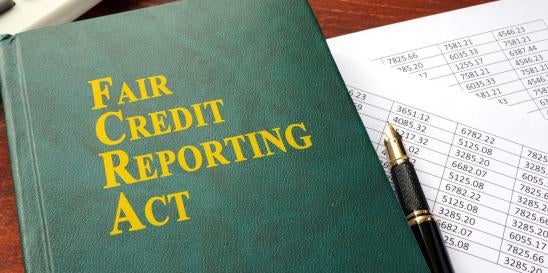The Fair Credit Reporting Act (FCRA) is a distant cousin of the TCPA that permits consumers to sue for inaccurate credit reporting.
While the FCRA has notoriously tricky standing requirements for its causes of action and no statutory damages, there is one place where the FCRA is actually more potent than the TCPA–when it comes to suing the federal government.
That, according to a new U.S. Supreme Court Case handed down just this morning.
In DEPARTMENT OF AGRICULTURE RURAL DEVELOPMENT RURAL HOUSING SERVICE v. KIRTZ the U.S. Supreme Court considered whether the FCRA’s private right of action provision acted to waive sovereign immunity.
For the unlawyerly, sovereign immunity is a fancy way of saying you can’t sue the government for the bad things it does because it owns you and not vice versa.
But there are times when the government can be sued–when Congress specifically says so.
In Kirtz the Plaintiff sued a federal agency related to false credit reporting. The Agency won at the district court level but lost at the Appellate Court level and appealed all the way to the Supreme Court arguing it cannot be sued under FCRA. But the Supremes disagreed. Per the syllabus:
Applying these principles leads to the conclusion that the FCRA
clearly waives sovereign immunity in cases like this one. The FCRA’s
requirements apply to “person[s]” who, like the federal government
here, furnish information to consumer reporting agencies. §1681s–
2(b). Sections 1681n and 1681o create a cause of action for money
damages to consumers injured by “[a]ny person” who willfully or negligently fails to comply with the statute’s directive. Section 1681a provides a definition of “person” that includes “any . . . government . . .
agency,” §1681a(b), and that applies to the entire Act. That other statutory provisions in the FCRA and elsewhere address the question of
sovereign immunity in arguably more obvious terms, see, e.g., §1681u,
does not make the waiver of sovereign immunity in the provisions at
issue here any less clear. Pp. 4–9.
Interesting, no?
Notice that the definition of the word “person” in the Telephone Consumer Protection Act (TCPA)–the federal statute regulating “robocalls”–does not include the government. For that reason courts and the FCC have consistently held that federal and state governments cannot be sued directly for calls they make without consent.
Something to keep in mind.




 i
i


